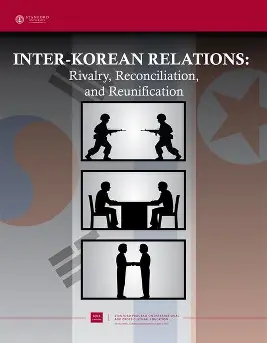The 'Catholic News Here Now' Catholic site features an article by a PhD in Political Science and Chairman of the Catholic Northeast Asia Peace Research Institute, titled "Momentum for Improving Inter-Korean Relations."
The president of South Korea is struggling to improve the worsening inter-Korean relations. Inter-Korean relations have been consistently hostile and confrontational throughout the previous term of the past president's government, with all lines of contact severed. This is because North Korea's Chairman Kim Jong-un has defined inter-Korean relations as "two belligerent countries at war," leaving no room for change. Furthermore, North Korea has expanded its external position through close ties with Russia, making it less inclined to improve inter-Korean relations.
Why do we need to talk, exchange, and cooperate with the North Korean government? This question is essential in a situation where the extreme right-wing forces' anti-North Korea hatred and incitement of inter-Korean confrontation are rampant, and one-third of voters agree with this. The '2024 Unification Awareness Survey' by the Seoul National University Institute for Peace and Unification Studies clearly shows the weak domestic support base for inter-Korean exchanges and cooperation.
According to the survey results, 31.6 percent said that inter-Korean talks are not necessary, 40.9 percent said that North Korea is an enemy that we must be wary of and threatens our safety, and 73.6 percent said that the North Korean regime is not capable of dialogue and compromise. This survey was conducted at a time when the atmosphere of confrontation between the two Koreas was at its peak due to the Yoon Seok-yeol government's breach of the "9.19 Military Agreement," the resumption of loudspeaker broadcasts toward the North, and the distribution of leaflets toward the North via drones, but it is shocking.
In the present situation, exchange and cooperation between the two Koreas are essential steps toward unification. If the two Koreas, who share the same language, exchange and cooperate with each other, they will be able to communicate and empathize at a profound level, which will lead to a strengthened sense of national community, and this will serve as a driving force for unification. The "national community unification plan," which has been the unification policy of the South Korean government since the Roh Tae-woo administration, is also a gradual method of building a national community through reconciliation and cooperation and moving toward South-North union and complete unification.
However, exchange and cooperation between the two Koreas are not smoothly achieved, as they repeatedly start and stop due to political and military conflicts. The relationship between the South and the North is one of antagonism and hostility. As one people, the two Koreas will inevitably be unified someday, so a fight for the initiative in unification is inevitable.
Examining history, countries with superior national power have been actively engaged in exchanges and cooperation. In contrast, countries with inferior national power have been passive out of fear of absorption or unification.
In the East-West German relationship, West Germany, with its strong national power, was actively engaged in exchanges and cooperation with East Germany. In the case of South and North Korea, when North Korea was superior in national power in the 1960s and 1970s, North Korea took the lead. Since the late 1980s, when South Korea was more advanced, it has been more active.
What is unique is that the conservative governments were reluctant to engage in exchanges and cooperation between the South and the North. This was because they believed that the funds flowing into North Korea through exchanges and cooperation projects would keep the North Korean regime alive. Since the early 1990s, they have consistently argued that we must pressure and isolate North Korea based on the theory that North Korea will collapse. Even though the extreme confrontational policy toward the North that the Yoon Seok-yeol government pursued for three years resulted in the strengthening of the North Korean regime rather than the collapse of North Korea, there are no signs of change in the conservative camp.
As of 2025, South Korea's GDP is expected to be 60 times that of North Korea, and its military budget is expected to be 1.5 times that of North Korea, indicating a significant lead in terms of national power. There is no reason for the South Korean government, which has the upper hand in national power, to refuse exchanges and cooperation between the two Koreas.
On the 11th, President Lee Jae-myung announced that he would stop broadcasting through loudspeakers toward the North as of 2:00 p.m. that day. He said, "I hope that this measure will help the South and the North ease military tensions and rebuild trust in each other."

No comments:
Post a Comment